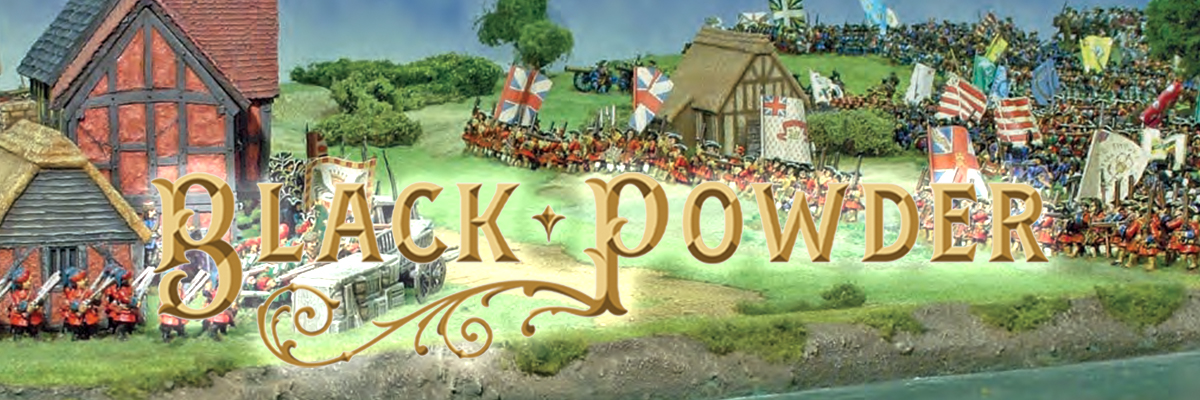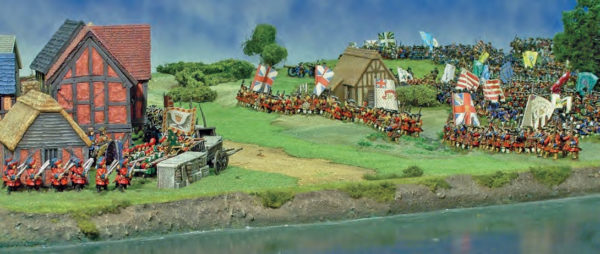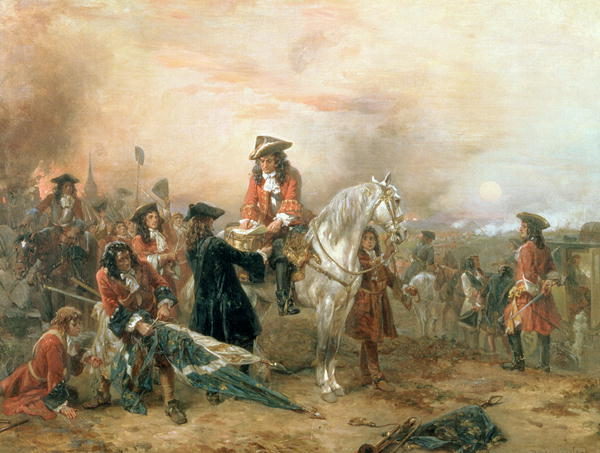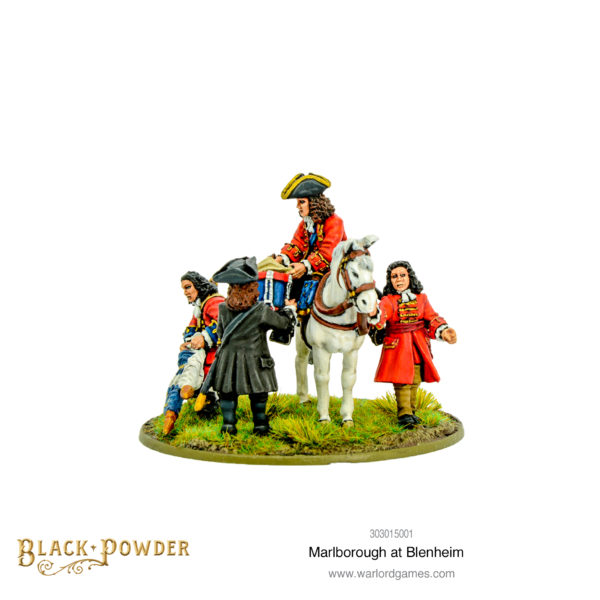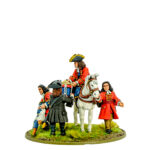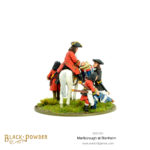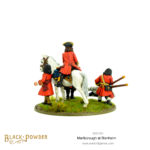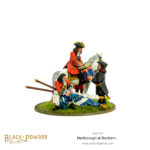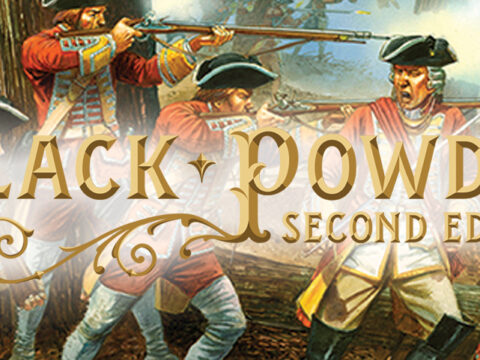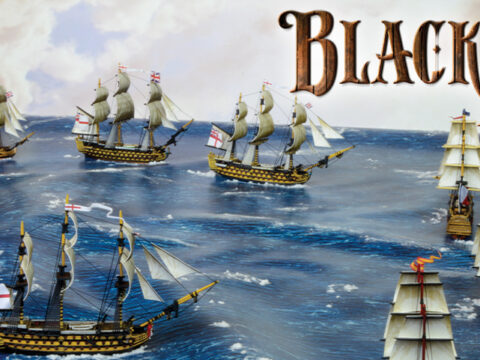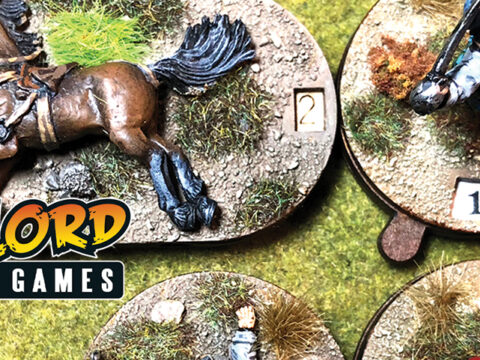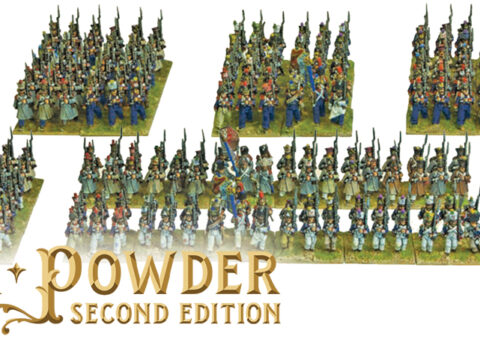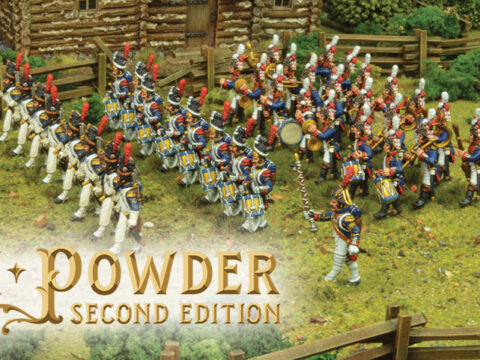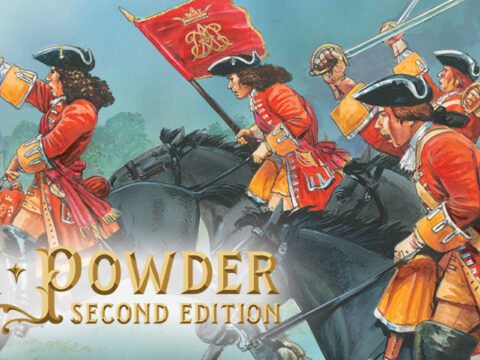With the release of a fantastic new command model, we’re taking a look at the Duke of Marlborough, one of Britain’s greatest generals!
John Churchill surely has a claim to be one of, if not the, greatest British general of all time. he was a page at the Stuart court and gained an ensign’s commission in the 1st Foot Guards in 1667. he served overseas with the French army against the Dutch (rather ironically) and rose to a position of prominence through his bravery and skill.
He was second-in-command of the Government forces during the Monmouth Rebellion in 1685 and thus helped James II secure his throne. however, Marlborough saw which way the wind was blowing in 1689 when he abandoned James and offered his services to the new king, William of Orange during the Glorious Revolution.
Although he served William well, Marlborough could not help but keep in contact with the Stuart
court-in-exile and was briefly imprisoned in the tower for his perceived treachery. Marlborough’s wife, Sarah, was friend and confidant to Queen Anne, and when she came to the throne he was once more restored to a position of power.
When the War of the Spanish Succession began, Anne put Marlborough forward as commander-in-chief of the allied armies in Flanders. For the next ten years, Marlborough was to inflict defeat after defeat on the French at Blenheim (1704), Ramillies (1706), Oudenarde (1708), and Malplaquet (1709), and at numerous sieges and smaller actions such as the Schellenberg in 1704.
Marlborough in Black Powder
Strategic Genius
The Duke of Marlborough was an excellent strategist and always seemed to be able to move troops to where they were needed most to break the enemy’s line. if the Duke of Marlborough is represented in your game as an army commander, the following rule may be used:
In the first turn of the game, the British player may place the Duke of Marlborough with any single brigade in his army. Orders are declared for this brigade as usual, but no dice are rolled. The brigade automatically gains three initial moves as though its controller had rolled the best score possible for orders. Thereafter, the duke is treated as a normal army commander, with a staff rating of 9.This rule reflects Marlborough’s strategic ability, and should allow the player to catch his opponent napping.Important Individual
Marlborough is a very important individual and his loss is too disastrous to contemplate. For this reason, he may never lead a unit into mêlée and cannot join a mêlée. If Marlborough is captured or killed during the course of the battle, the best result the allies can obtain will be a draw, no matter how well they thump the Frenchies!
He managed to do this despite constant political backstabbing from Parliament at home, and all the while holding together a discordant coalition through consummate diplomatic skill. By 1711, his victories had made a march on Paris a reality, but the failure of peace talks with France were to be his undoing. he was accused of prolonging the war for his own ends, and he and his wife fell out of favour at the royal court at home.
He was dismissed as Captain-General in disgrace, his enemies at court and in parliament having finally
succeeded in blackening his name. After the war was over, he was returned to his position of Captain-General by the new Hanoverian dynasty and oversaw the 1715 rebellion in this post.
Marlborough died of a stroke in 1722. it is widely accepted that his victories over France raised England’s status in Europe and thrust her onto the world stage. Marlborough always looked after his men, who adored him in return, nicknaming him Corporal John. They were proud to boast that he had never lost a battle and never failed to take a town he besieged.
Marlborough at Blenheim
When the battle of Blenheim was over, the Duke of Marlborough, whilst still in the saddle and surrounded by his victorious troops, took a moment to write a short note to his wife, Sarah, to tell her of the victory. The note, rather famously, was written on the back of a tavern bill and the Duke leaned on a drum to steady his hand. The note read:
We have based this command group vignette on Hillingfords famous oil painting of this event. In it, a page steadies the Duke’s horse whilst an aide de camp holds up a drum for the Duke to lean on whilst he writes his note. In the foreground, a soldier collects the standards of the fleeing French regiments to present to the victorious Duke.

